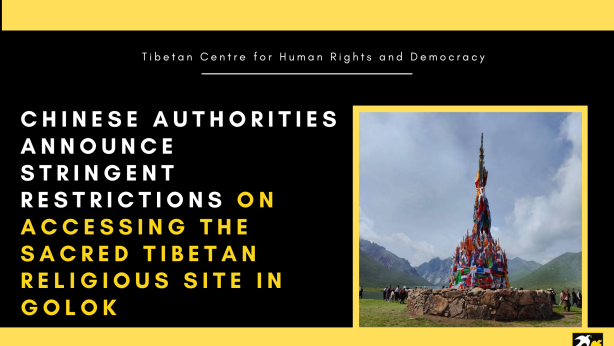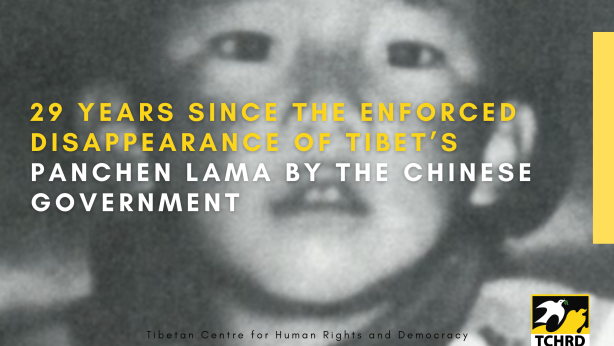Tibetan farmer escapes imminent arrest for sharing religious texts
Ugyen Lhundup, 57, was a farmer at Thangka Village in Kardze (Ch: Ganzi) Township in Kardze Tibetan Autonomous Prefecture, Sichuan Province. In 1999, he came to India and lived for some time to study Buddhism. In 2001, after attending the Kalachakra teachings at Bodh Gaya in the north Indian state of Bihar, he returned to Tibet taking along some CDs and books containing religious teachings, which he shared with others on requests from friends and relatives. He also made free copies of the CDs and distributed them among his social circle. It was then that he became a prime target for supervision and surveillance. On 21 October 2012, to escape imminent arrest, he left his house and farm in the care of his neighbor, and secretly left Tibet and reached India on 15 December 2012. Ugyen Lhundup shares his ordeal:
“In 2002, the head of County Public Security Bureau officer, Loga, summoned me at his office. At the PSB office, the officer confiscated my passport and threatened me with five to six months’ detention, if I did not stop questioning the confiscation of my passport. I was let go but without my passport.
“In 2004, I was again called at the County PSB office where I was told not to venture beyond Dzachuka in the north and Ngari in the south. The officers told me that they were suspicious of me collecting outside information and my past India visit. Now I required official permission to leave my own hometown. Soon, I came under heavy surveillance. The authorities collected information from friends and neighbors about where I went, whom I met and what I did.
“In 2008, many Tibetans died during security crackdowns. Many were left scarred for life. For instance, nun Dhontse Wangmo was detained following her peaceful protest against the Chinese government. As a result of beatings and torture in detention, she has now lost her mental stability and needs constant care and attention. In 2010, two nuns, Namgyal Lhamo and Tashi Choedon, [Full report] were detained after they staged a peaceful protest in Kardze County town. After five months in secret detention, both nuns were released when the prison officials noticed that the nuns had lost mental balance due to severe beatings and torture.
“I remember a young woman in Kardze was imprisoned for two years after she copied a speech by exile Tibetan political leader, Sikyong Lobsang Sangay and shared it with others. After her release, she continued to face difficulties getting employment. In September 2011, many ‘work teams’ arrived in Kardze to spread socialism and Party propaganda among local Tibetans. ‘Work team’ officials holding higher positions were sent to rich Tibetan families who were congratulated on their newfound wealth but at the same time to remember to be grateful to the Chinese government for the new prosperity. The lower-level ‘work team’ officials visited the poor Tibetan families burdening them with money and expensive gifts and telling them that Tibet and China are ‘inseparable siblings’. They also told the Tibetans to air their grievances but at the same time to listen and implement the orders of the Chinese government. Moreover, the ‘work team’ officials rigorously hold ‘patriotic education’ telling Tibetans not to follow the incitement of the ‘Dalai clique’.
“Furthermore, following the twin self-immolation protest in Lhasa, many Tibetans from Kham and Amdo provinces living in the city for many years were expelled and returned to their native villages. Tibetans living outside Tibet Autonomous Region (TAR) have to seek permissions from different county authorities including County police station, County PSB office, to visit TAR. The process for procuring these permissions require a Tibetan to make a formal undertaking not to join any protest activities in Lhasa or elsewhere in TAR. Tibetans visiting Lhasa without government authoritisation are being detained, questioned and returned back to their home villages. Security presence has increased in and around Lhasa with countless cameras spying on the activities of local residents.
In areas where self-immolations and other protests have occurred, monks and nuns are not allowed to leave their monastic institutions without official permission. In case of emergencies, they are required not only to seek permission from local PSB office but also to leave someone as guarantee for their return. Restriction on all communication channels such as the Internet
and phone has increased in Kardze.”


